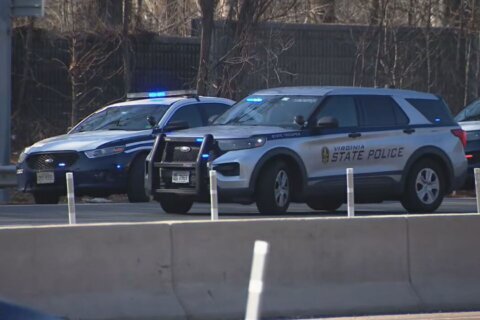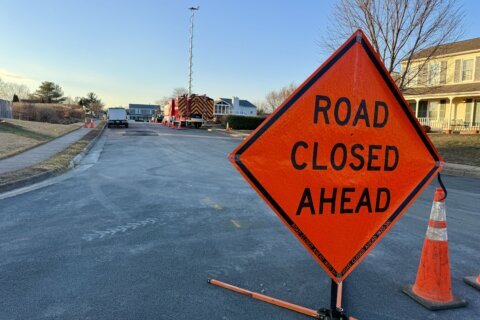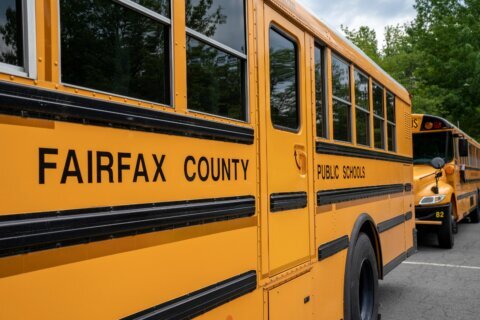This article was written by WTOP’s news partner, TysonsReporter.com, and republished with permission.
Business is hurting in Vienna. The Maple Avenue Market closed last week, as did the GameStop, with an employee there citing increasing rents as the leading cause.
As store after store shuts its doors, there are questions swirling around town about whether local businesses can stay competitive with new developments surrounding Vienna — and if so, how?
At a town council meeting in January, town business liaison Friderike Butler said businesses on side streets were being hit particularly hard.
“If they’re not on the main street, they’re struggling a lot more,” said Butler. “Even on Church Street, it’s not easy. The economy is doing well overall, and if we have small businesses struggling as the economy is doing well, what is going to happen if there is a recession? It’s something to really think about and make sure our business community is strengthened and supported.”
Peggy James, executive director of the Vienna Business Association, told Tysons Reporter that two big challenges are facing local stores.
“It’s very expensive and we’re pretty tight on parking,” said James.
What’s driving up the rent? It’s an old maxim anyone in real estate will be familiar with.
“Location, location, location,” said James. “It’s always been an expensive place. With Mosaic District just two miles away and Tysons building up like crazy, the competition for brick and mortar is tough.”
Over the years, James said the Saturday morning shopping at mom-and-pop stores that had turned Vienna into a local destination disappeared as sales went to big box stores and Amazon.
“The challenge in this age of Amazon is double,” Frank Shafroth, director of the Center for State and Local Leadership at George Mason University, wrote in an email. “You don’t even have to leave your home or apartment to purchase, and Amazon has such size and distribution that it can undercut in price on almost anything one would purchase at a small business.”
SUBSCRIBE TODAY | Like this article? Read more by subscribing to TysonsReporter.com’s newsletter today.
But all three experts noted that there are ways to help local businesses survive.
From a policy standpoint, Butler said the Town of Vienna can help make parking more accessible.
“We need a comprehensive parking map,” said Butler. “Culpepper has a beautiful parking map distributed everywhere in stores and people know where to park. For visitors who have never been in Vienna, it’s very confusing where to park. A comprehensive map would be helpful.”
Town Councilmember Howard Springsteen also recommended the Town Council consider hiring a full-time economic development specialist, an idea that’s been tossed around the council for two years.
“There’s a limit to how much we can rely on volunteers,” said Springsteen. “We just really need to bite the bullet and do it.”
For businesses, Shafroth said survival hinges on finding a niche that can’t be as easily replicated by bigger stores or by Amazon.
“Retailers have to carve out a niche that makes them indispensable: whether shopping for a stroller, car seat, crib or mattress,” said Shafroth. “For instance, new parents want to walk into a physical store and speak with a retailer who can field multiple questions and direct them to the products that best suit their needs — even if those products are available through a different vendor.”
As part of that, Shafroth also said smaller stores should capitalize on the advantages physically touching merchandise offers.
“It’s hard to be certain — especially if you are shopping for a small child, for instance — what will work,” said Shafroth. “A parent wants to feel and touch something: is it baby soft? If it’s a toy, is the mechanism simple enough and safe enough for a tot?”
He continued: “According to Forrester, 43 percent of millennials respond they would rather shop at small local stores, as opposed to big national chains. According to Cassandra, a trend forecasting, research and brand strategy firm, 78 percent of parents in the U.S. would rather shop in stores than online. And, according to the National Retail Federation, today’s young parents spend as much as $1 trillion on items for kids — and this generation values good service more than convenience: they want to be certain that what they purchase will be appropriate — and safe.”
And at the individual level, there’s an obvious answer for how locals can help small stores survive.
“The best thing people can do is give local businesses the first shot at a sale,” said James. “I had a lot of loyal customers at Artful Gift Shop. They’d come to us first. You don’t have to find what you want, but give us a shot.”
James also noted that it can be too easy for locals to blame new developments, like those coming in with the Maple Avenue Commercial zoning changes, for the hardships local stores are facing.
“We can’t stay small and survive,” said James. “We can’t stay as small shops if we can’t keep customers. New spaces [are being developed] on Maple Avenue. Citizens don’t like it and I can understand it, but it kind of has to happen.”







